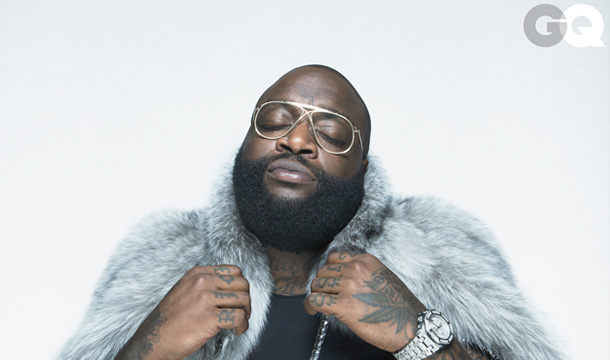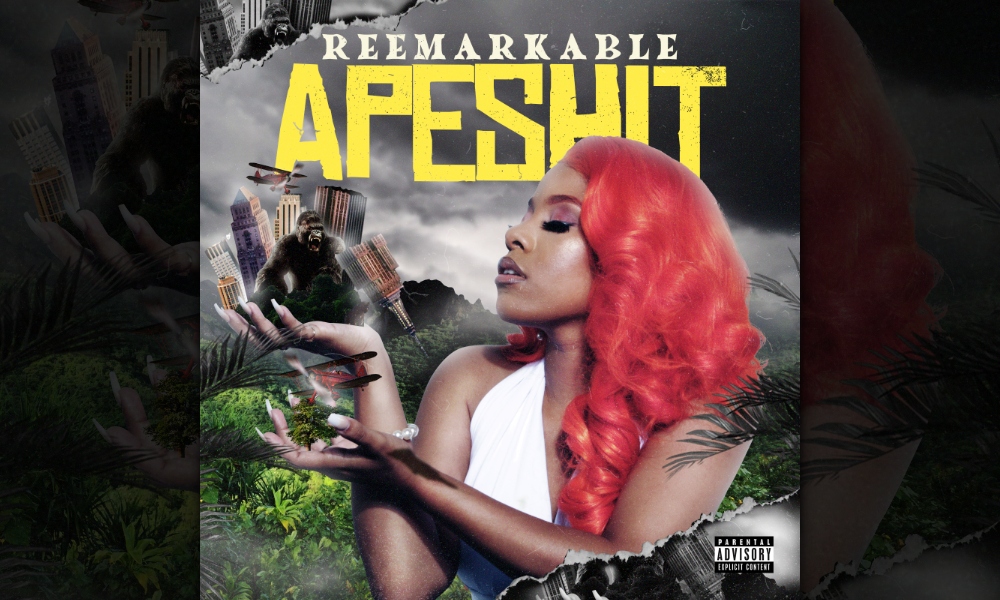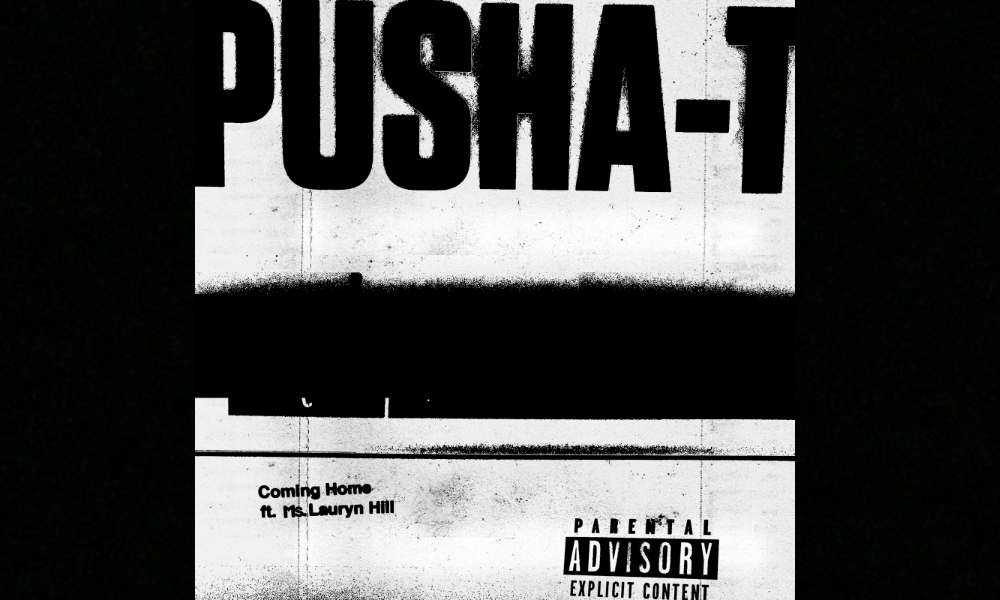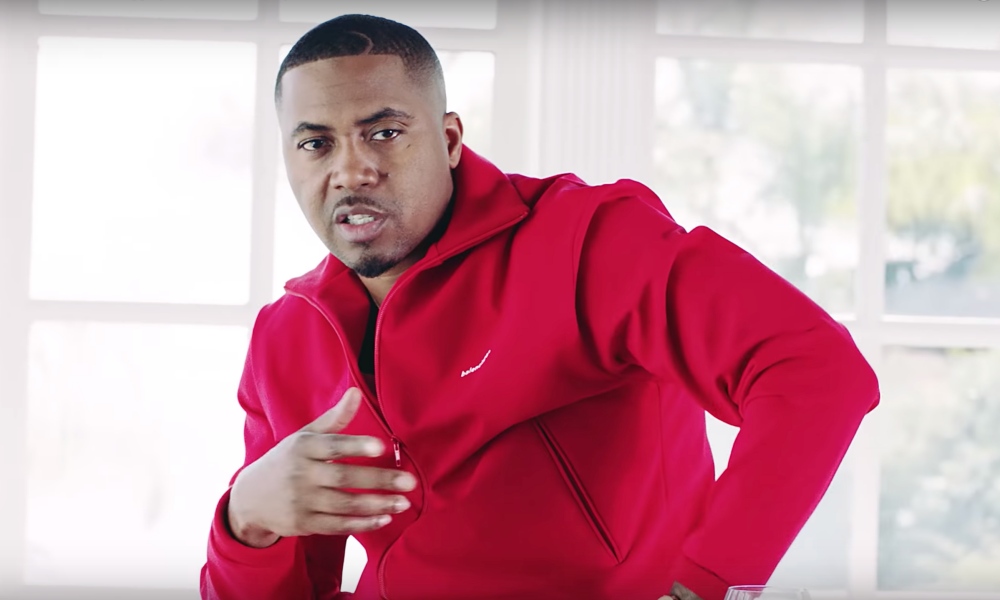Women's rights groups are celebrating a big win. According to TMZ, rapper Rick Ross was released from his contract with sneaker giant Reebok after not stepping up to the plate and tackling the backlash from his lyrics on the song, "U.O.E.N.O." On the record by rapper Rocko, which Ross is featured on, he raps, "Put molly all in her champagne, she ain’t even know it/ I took her home and I enjoyed that, she ain’t even know it. He never actually says the word "rape," but his lyrics translated into date rape.
"Reebok holds our partners to a high standard, and we expect them to live up to the values of our brand. Unfortunately, Rick Ross has failed to do so," a rep for Reebok told the gossip site. "While we do not believe that Rick Ross condones sexual assault, we are very disappointed he has yet to display an understanding of the seriousness of this issue or an appropriate level of remorse."
At the height of the uproar, Ross made an apology, but many rejected it, including women's rights community UltraViolet.
“We are thrilled to hear that Reebok is joining the fight against rape culture and dropping Rick Ross," says a rep from the group. "This is a huge victory for women, for the 526 survivors of rape who were brave enough to publicly confront rape culture, and for the nearly 100,000 UltraViolet members who have poured their hearts and time into this campaign. This sends a strong message that rapping about drugging and raping an unconscious woman is not only morally wrong, but has real consequences. After Steubenville, Americans expect and demand better. Thank you Reebok for taking a stand.”
Nearly 100,000 UltraViolet members signed a petition demanding Reebok drop Rick Ross, more than 10,000 called Reebok demanding action, more than 2,000 tweeted the company, and nearly 100 protested in front of Reebok’s NYC flagship just last week. See photos here: http://bit.ly/reebokprotest
Rapper Rick Ross has been dropped by Reebok due to the controversy surrounding his lyrics that appear to condone rape. This incident is the latest in a string of controversies sparked over hip-hop lyrics, raising questions about freedom of expression and censorship. Read on to find out more about this story and its implications for free speech in popular music today.
In recent weeks, Rick Ross’ sponsorship with Reebok has come under fire when an unreleased song he wrote featured explicit language condoning rape. The ensuing public outcry was swift and severe, leading Reebok to drop their partnership with the rapper. It’s not just fans who have expressed outrage – female rights groups and other organizations have also condemned Ross’ words as unacceptable and potentially dangerous.
The decision by Reebok to sever ties with Rick Ross brings into focus the ongoing debate regarding what should be deemed appropriate content for popular music versus being censored or banned altogether. How much freedom do artists have? What kind of message does it send if we censor certain views from our airwaves? These are some of the questions raised by this news story – read on to explore them further!
Background Information
The controversy surrounding Rick Ross and Reebok began in April 2013, when the rapper released a song titled “U.O.E.N.O.” which contained lyrics that many listeners felt alluded to rape. In response to this outcry, Reebok decided to end its sponsorship of Ross, citing their commitment to promoting “positive images” for women and children as the reason behind the decision. This move sparked debate among fans who believed that Ross was being treated unfairly by Reebok for simply expressing himself through his music while others argued that he should be held accountable for potentially endorsing such an extreme act with his lyrics.
The issue has since become more complicated due to Ross’s persistent refusal to apologize or take back what he said in the song despite mounting pressure from both parties involved in the conflict. Even though criticism against him continued to grow, he maintained his stance on not changing a single word of “U.O.E.N.O.,” claiming it would go against his artistic integrity and freedom of speech rights as an artist. As a result, Reebok’s severance of ties with Ross had no effect on how he went about making music or business decisions afterward, thus leaving unresolved any potential progress made toward healing this rift between him and the corporation.
Ultimately, there appears to be little chance of reconciliation at present given how entrenched each side is in defending their respective positions on this matter; therefore, it seems unlikely that either party will budge anytime soon unless something drastic triggers them into action once again on this heated subject matter.
Reactions And Implications
The reaction to Reebok’s decision to drop Rick Ross was mixed. On one side, some argued that the company had acted responsibly in taking a stand against potentially promoting rape culture and protecting its brand image from any possible backlash associated with such lyrics. Others saw it as an act of censorship which infringed on Ross’s right to free speech and artistic expression.
Regardless of opinions regarding the morality behind Reebok’s move, the implications for future artists remain unclear. This incident could set a dangerous precedent wherein certain forms of lyrical content become off-limits for fear of public outrage or corporate disapproval, thus undermining freedom of expression within hip hop music. It also creates a sense of uncertainty over how far companies are willing to go when it comes to sponsoring musicians who may be deemed politically incorrect or offensive by their standards.
Moving forward, this issue raises important questions surrounding what constitutes appropriate language in today’s society and whether corporations have the power–or responsibility–to dictate what is acceptable or not in terms of creative expression. As such, these unresolved tensions between artistry and business will need to be addressed if we hope to find a resolution that satisfies both parties involved without compromising either party’s fundamental rights.
Conclusion
In conclusion, this situation has created a lot of turmoil for Reebok and Rick Ross. It’s clear that many people take issue with his lyrics and view them as condoning rape. As a result, the company had to make a tough decision in deciding to drop him from their campaign.
This whole ordeal brings up an important question: should companies be held responsible for who they hire or what message they promote? There is no easy answer here, but it certainly puts into perspective how difficult it can be when there are so many opinions on any given matter.
At the end of the day, everyone involved will have to live with the consequences of these decisions. For Reebok, this could mean losing out on potential customers; for Rick Ross, he may find himself facing some career obstacles down the road due to his controversial lyrics. No matter what happens next, one thing is certain – this “rape” turmoil won’t soon be forgotten by anyone involved.
Founder and Creator of Singersroom.com and IncredibleWork.com. Follow me on Instagram at @gary.gentles.








